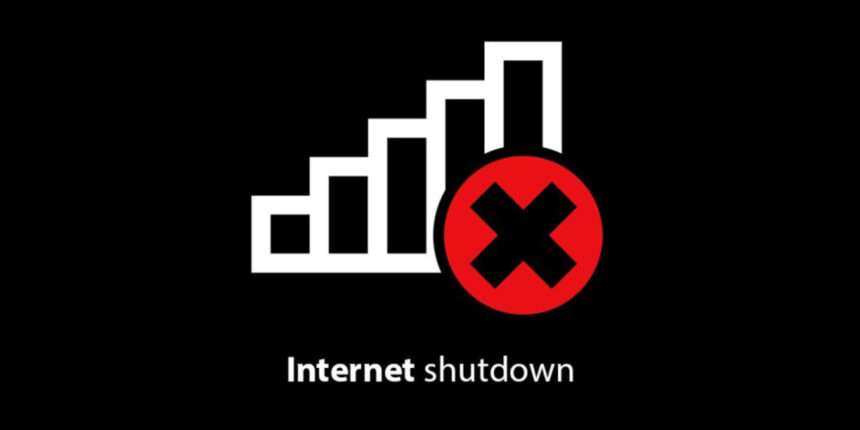I think most of people may have faced the internet issue quite a few days. This has become a quite controversial issue for the past few days. Then, why is this happening? And why none of the ISPs in Nepal are not able to provide proper internet services? Are they all down? So let’s get deep into the real issue.
How Nepal Gets Access To Internet?
Before getting into the main issue, let’s understand how Nepalese citizens were getting internet services and from where do the internet comes into Nepal. In short and simple, different ISPs (Internet Service Providers) of Nepal buys internet bandwidth from internet provider company like Airtel(around 70%) and Tata of India and provide internet services to local people like us. So, this is how we were able to use the internet.
Broadband providers owe about Three Billion Nepali Rupees ($22.5 million) to Indian vendors but have not been able to transfer the money.
Issue Regarding Payment To Indian Companies By Nepali ISPs
Nepal’s government has refused to give the necessary approval to transfer the funds out of the country, saying that the internet service providers (ISPs) must first pay outstanding taxes – a dispute that dates back years.
Private internet providers say that the legal framework governing their businesses exempts them from those taxes. They say that the ISPs make annual transactions totaling around Rs 27 billion and already pay more than Rs 9 billion in revenue to the government under eight various headers.
Due to this, It has already been a year since Nepali ISPs defaulted on payments for upstream services.
In December last year, Tata and Airtel, the Indian firms that provide upstream bandwidth to Nepali ISPs even threatened to cut off services from January 1, 2024, if the Nepali ISPs failed to clear the dues. However, the issue remains unresolved due to the change in the government, but the Indian firms have not disrupted their services at the request of Nepali ISPs.
Past Issues Regarding Internet Fees Disputes
Nepali ISPs buy 70 percent of their internet from Airtel. In December last year, officials from India’s Tata and Airtel (the bandwidth providers) – visited Nepal to discuss the issue as the dispute over the payment of tax dues escalated between the government and the ISPs.
A few years ago, a committee told the government that certain internet service companies should not pay taxes on some of their services. The government agreed and told the tax department to not charge these companies for these services from 2017 to 2019. However, Nepal’s main audit authority disagreed with this decision and said these fees should be paid.

Now, the government is asking the internet companies to pay back the money they owe. If they don’t pay, they won’t get help with foreign currency from the Ministry of Communication and Information Technology.
“After months, Indian upstream service providers have again warned us that they would stop services if payment is delayed,” according to a member of the ISPs.
This is what had happened in actuality.
“The government needs to take the issue seriously. The issue is sensitive,” Binay Bohra, owner of Vianet Communication, an internet service providing company in Nepal, told in a press meeting.
“Who will take the responsibility if Indian upstream service providers cut off the internet?”, said Sudhir Parajuli, president of Internet Service Providers’ Association Nepal(ISPANs), said that the Indian upstream service providers sought a letter of bank guarantee after Nepali ISPs were unable to pay their dues in foreign currency.
However, the Nepal Telecommunication Authority, the regulatory body, has asked the central bank not to provide bank guarantee letters either.
The ongoing disruption threatens to escalate into a complete internet blackout across the country if the payment issues are not promptly resolved. Efforts are underway to address the situation and restore full internet connectivity to affected customers.
Related: Unlocking the Sky’s Secret Saviors: How Drones Could Be Mount Everest’s Lifeline
Will Nepal go into a complete Internet blackout?
If the ongoing disruptions and the payment issues are not promptly resolved then this may force the Indian companies to completely cut the internet and we may have to face a complete internet blackout across the country. But efforts are being made to address the situation and restore full internet connectivity to affected customers.
How has this Internet Blockage affected the business?
Due to this internet blockage in Nepal, especially online businesses are more likely to be affected and have to suffer more as compared to other local model. This will have impact to all kind of businesses from small businesses to large organizations. Major business areas that are most likely to be affected are e-commerce businesses, online banking services as well as all other banking services like fund transfer and management, online service providers (freelancers), remote workers may not be able to work remotely and so on.
Looking at the local level, people used to promote their products on social media like TikTok, Instagram, Facebook, and other platforms. Blockage of the internet directly means unavailability of these services which will hamper their sales and customer reach which automatically brings losses to them.
Also, many large organizations need to bear huge losses. Their whole network may collapse or cannot have proper communication which again leads the organization to bear huge losses. Specially, e-commerce business organizations and platforms. Not only that, but Nepal is a hub of outsourcing works meaning that companies and business operating here not only have local but international clients as well. Unavailability of Internet means losing those international clients and business deals as well.
Because of the Internet outage, those business had to lose deals worth lacs and also put their reputation and future potential clients in doubts. Furthermore, it has also created a situation of uncertainty and fear for those thinking of starting their own companies/business in Nepal whose sole source of revenue and clients are from the use of Internet.
What Can Be Done To Resolve This Issue?
You might have questions raised in your mind – “Why can’t we take mobile data or any kind of data pack?”
Sure we can, but this will not work for long. This is because high demand for mobile data means obviously the prices of purchasing data will rise very highly. So in all cases, we will have to suffer a huge loss, not we but the whole country.
Government of Nepal needs to be more serious to address this issue and resolve it as fast as possible before it become too late.









